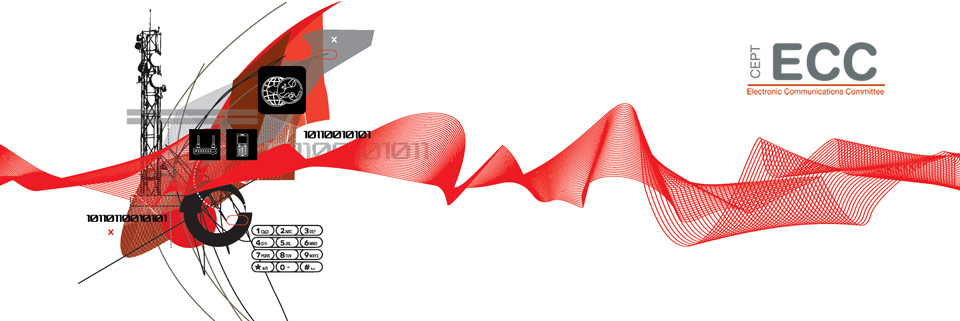Representing Europe effectively on the world stage
At the start of 2012, around 3000 delegates representing more than 150 countries are expected to converge on Geneva for the next World Radiocommunication Conference, WRC-12. This will be the culmination of many large meetings, and even smaller ones, all across the world over the previous four and a half years. So why is this conference so important? And why does so much effort go into it?
WRCs are held every 3-5 years, and the outcome of each is significant as they revise the Radio Regulations, a legal instrument of the International Telecommunication Union (ITU) having a treaty status. The most prominent article of the Radio Regulations is Article 5 'frequency allocations' which allocates each frequency band to one or more radiocommunication service(s) with its respective status and any relevant technical or operational conditions.
However, the Radio Regulations also include all coordination and notification procedures, particularly important for space services; relevant measures to avoid interference between services and for the operation of certain services; procedures for cases of interference, assignment or allotment plans for certain frequency bands; and many other provisions.
The main objectives of the Radio Regulations are to ensure equitable access to spectrum and orbital resources and to avoid harmful interference between the radio services of different administrations. Of course, each administration keeps the right to use spectrum as it wishes inside its national borders provided that there is no interference or constraint to other countries. However, the physical properties of radio are such that, in practice, the Radio Regulations' provisions are an essential framework for CEPT decisions and national spectrum management regulations.
The Radio Regulations are also used in particular cases to foster harmonisation in areas where it is essential for the operation of services for reasons such as international operations (e.g. aeronautical, maritime or space services), and economies of scale (e.g. IMT - International Mobile Telecommunications).
The WRC-12 agenda, defined at the previous conference (WRC-07), includes a wide-range of items, such as:
- Protection of other services from mobile services operating in the digital dividend band (790-862 MHz).
- Spectrum for aeronautical services, including the spectrum requirement for integrating unmanned aircraft systems in the airspace, the technical and operational conditions applying to three new bands allocated at WRC-07 for the development of future aeronautical communication systems and the access to spectrum for the development of mobile satellite providing en-route aeronautical communications.
- Provisions for additional spectrum and protection of scientific services, including earth exploration and meteorological aids.
- Provisions applicable to space services, either in particular band such as the 21.4-22 GHz allocated to Broadcasting Satellite Service or to improve the procedures application to coordination, notification and bringing into use of satellites.
- Spectrum for maritime services in relation with many issues, particularly Global Maritime Distress Safety System, Automatic Identification system and introduction of new digital technologies in HF or VHF spectrum.
- Harmonisation of spectrum for electronic news gathering.
- Review of the international regulatory framework to ensure the right balance between flexibility of administrations and protection against harmful interference.
CEPT is one of the regional organisations, recognised by ITU in its WRC preparation. Others are the African Telecommunications Union (ATU), the Regional Commonwealth in the field of Communications (RCC), the Arab Spectrum Management Group (ASMG), the Inter-American Telecommunication Commission (CITEL) and the Asia-Pacific Telecommunity (APT).
Within CEPT, the Conference Preparatory Group (CPG) is responsible for the development and adoption of 'briefs', which include background information, results of studies and CEPT positions, and of European Common Proposals (ECPs) which will be submitted to WRC-12 on behalf of all CEPT administrations which have signed them.
Although the next WRC is more than one year ahead, CPG has already developed draft ECPs on each agenda item and, through individual administrations, has actively participated in all ITU-R studies which have resulted in the draft report of the Conference Preparation Meeting (CPM). This meeting will be held in February 2011 to discuss the outcome of these studies and, in particular, the possible methods to satisfy each WRC-12 agenda item. Its report will be the main basis for administrations and regional organisations to develop or finalise their proposals to be submitted to the WRC itself.
This CPM meeting is a key step in WRC-12 preparation requiring strong involvement from CEPT administrations. CEPT has to explain and defend its positions and the several inputs to CPM have been developed within CPG. We will also listen to and learn from other regional organisations' and administrations' positions and concerns. Our goal is to ensure that our proposals for WRC-12 will support CEPT objectives and are a sound basis for a new revision of the Radio Regulations which has ultimately to accommodate the requirements of all administrations to achieve the best possible outcome for us all.
Eric Fournier
Chairman, ECC: Conference Preparatory Group
